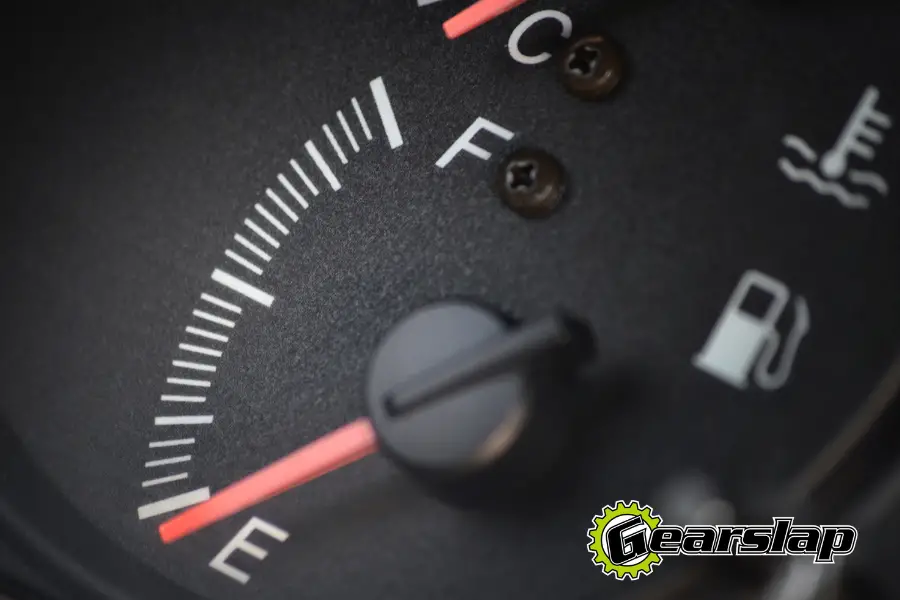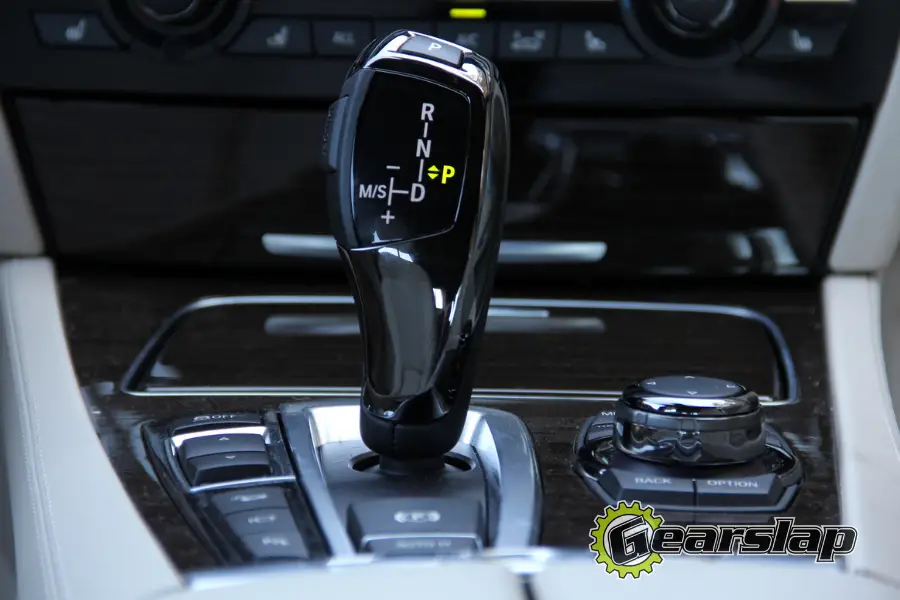The world has two kinds of people: those who fill their gas tanks to the F when they stop for fuel and those who add a quarter or a half of a tank at a time.
Growing up, I didn’t have much money, so the fuel level in my tank usually corresponded to the level of money in my bank account. I usually put $5-$10 in the tank and hoped it would get me where I needed for the week.
My buddy, in contrast, never let his fuel level go below 1/2 tank because he always wanted to have enough gas if he needed “bug out,” He said that the added weight was negligible to getting better gas mileage. (He might have been a bit paranoid… but I digress.)
Out of embarrassment of being poor, I argued that my lighter fuel tank was more efficient.
That leads to the question of do you get better gas mileage with a full or empty tank.

Read on to find out whether you get better gas mileage on a full or nearly empty fuel tank and other factors about filling up.
Gas Mileage on a Full or Empty Tank
Gas prices have us all wondering how to get the best gas mileage from every gallon. The truth is that you’ll see better gas mileage on a tank closer to empty than full just because of the lower weight.
The reason why has to do with weight. The lighter your car is, the better gas mileage you’ll get. If you’re wondering what the average weight of a full gasoline tank is, it’s between 91 pounds to 166.4 pounds, depending on the size of the gas tank. Each gallon of gas weighs 6.1 pounds, so filling up less can make your car more fuel efficient.
However, when your car’s tank is too close to empty, air will enter the fuel pump, which can decrease fuel efficiency and could cause your engine to stall (especially when you run out of gas).

Does a Lighter Car Get Better Gas Mileage?
The short answer is yes; a lighter car will get better gas mileage since there is less mass for the motor to move. Smaller, lighter-weight cars get better gas mileage, and emptying your car’s trunk is a quick way to lighten its load to improve gas mileage.
By contrast, larger vehicles will be less fuel efficient, as are vehicles carrying around extra weight. The way to get the best gas mileage is to drive electric or hybrid vehicles (just because they’re proven to burn less gas… zero for electric vehicles (duh!) and reduced amounts for hybrids).
When “just buying an electric car” is not an option due to costs or other limitations, here are six tips to get better gas mileage:
- Lighten the load. Heavier vehicles burn more gallons of gas because they require more energy (fuel) to move. If you have extra “stuff” loading down your car, store it someplace else.
- Consolidate trips. If you can plan your routes to hit more places in fewer trips, you’ll make a tank of fuel last longer.
- Don’t Idle. If you can avoid idling, do so. Idling doesn’t burn much fuel, but it adds up over time. I hate modern vehicles that turn off when you stop, but they are better at saving fuel – especially in city driving.
- Drive the Speed limit or slower (multiple tests have shown that optimal gas mileage for most cars is 55-65 miles per hour)
- Set cruise control at highway speeds when possible this eliminates the surges that happen when you drive “naturally.”
- Maintain your vehicle. Check, inspect or replace your spark plugs, air filter, fuel filter and fuel lines; change your oil at regular intervals and use the proper oil weight for where you live (we recommend synthetic oil).
Is It More Economical to Drive with a Full Tank of Gas?
With fuel costs where they are today (late 2022, for reference), it makes sense to know whether it’s better for your wallet if you fill up the tank or if you should wait until the gas light comes on to add a few gallons.
While a less full tank is more fuel efficient, you may wonder whether it’s more economical to drive with a full tank of gas or one closer to the E. The answer to that question depends on multiple factors.
The primary thing you’re probably asking is whether or not your car gets better fuel economy with the tank full or empty. As we established earlier, all things being equal, lighter vehicles tend to get better gas mileage.
Carrying around extra weight isn’t good for fuel economy – but is it more economical to drive around with a full tank then?
We can look at this in two ways; with gas being so expensive, is it better to fill up when you find it cheap? Or would the added weight of a full tank cause you to burn gas faster, making it “more expensive” to fill up instead of just adding a few gallons at a time?
If you find a station with low gas prices or have a discount on fuel during a fill-up – a promotion among some grocery stores and smartphone apps – it is more economical to buy as much of the lower-priced gas as your car’s tank will hold. The weight of those gallons won’t outweigh your savings.

However, if you need to fill up and are in an area with higher gas prices, buy as much gas as you need but not more. You can always buy more gas at a less expensive gas station.
Does a Car Run Better with a Full Tank of Gas?
If you’re wondering, “is it better for your car to drive on a full or empty tank?” the answer is to keep your car’s tank closer to full than empty. The reason is that a tank near empty doesn’t leave your car’s fuel pump lubrication. This increases the risk of your car’s engine overheating and sediment at the bottom of the gas tank getting drawn into the fuel pump.
Is It Bad to Keep Your Gas Tank Full?
While old gas will leave residue and lose octane in a gas tank kept full, if you use your vehicle regularly, this won’t be a problem. Add a fuel stabilizer if your car will sit idle for a few months. Keeping your gas tank full has important advantages for drivers, such as these:
Safety
If you tend to fill your car up every time you’re at the pump, you’ll be safer since you won’t risk running out of gas in a traffic jam.
Convenience
If you fill up, you won’t be late for work because you must stop for gas. Filling up every time you stop for gas will mean fewer fill-ups, saving you time.
Better Performance
Keeping your gas tank away from empty is better for your car’s performance since a full fuel tank won’t have condensation, which can cause corrosion in your car’s engine. Your fuel pump performs best with enough gas to keep it lubricated.
More Protection
If you keep your car’s gas tank filled with top-tier gasoline with additives to keep your car’s fuel system sediment-free, you will have more protection from problems such as a clogged fuel pump. Consult your car’s owner’s manual to see which octane level is best for your vehicle.
While your car might get better miles per gallon from a tank closer to empty than full, letting your tank become empty can contribute to mechanical problems in your car and could leave you stranded. Keeping your car’s gas tank full might reduce fuel efficiency for some of those gallons, but a full tank has advantages in convenience and your car’s performance.
Looks like my friend was right all along – but for the wrong reasons!


